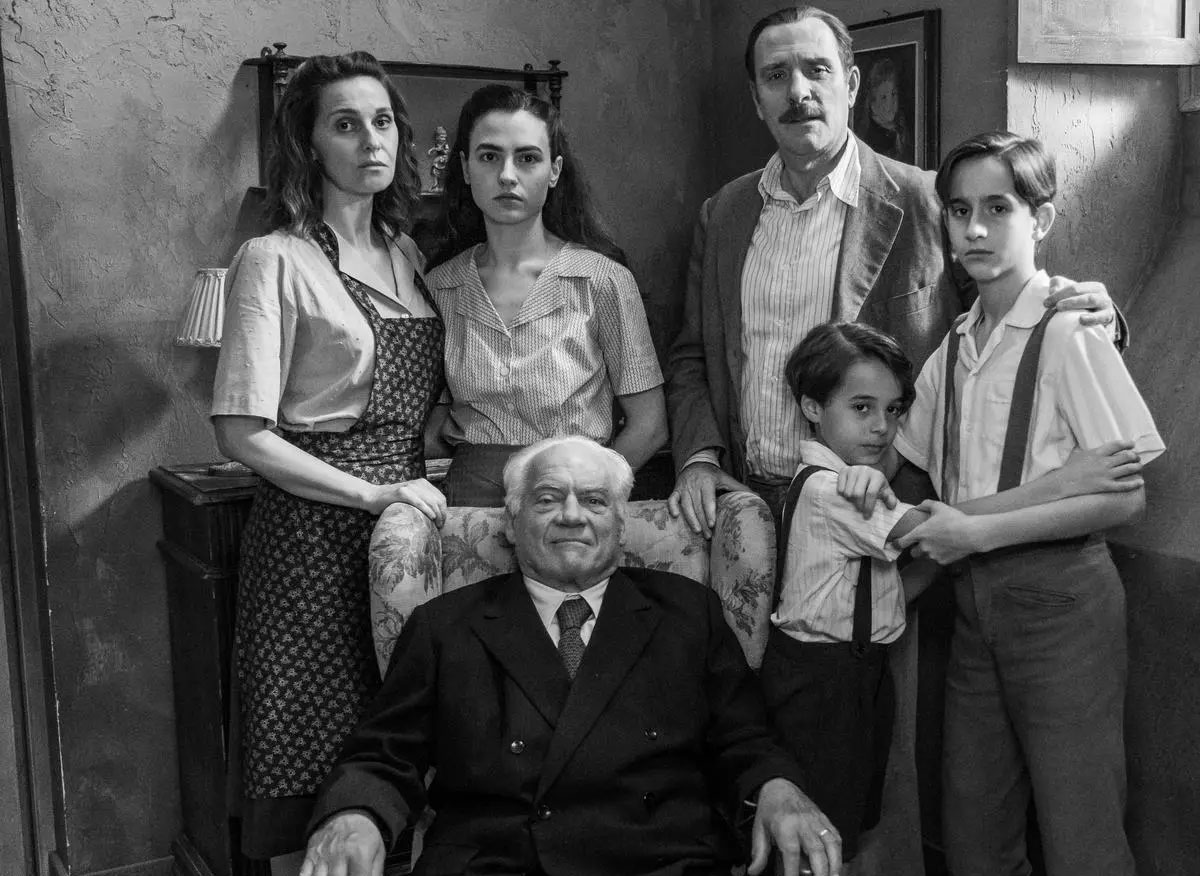
Photo Credit: Filmitalia
Barbie, directed by Greta Gerwig, may have been the most successful movie ever to be directed by a female filmmaker and the highest grossing film of 2023, but it was overthrown at the box office in Italy by another film that is still directed by a woman and speaks directly about the female experience.
There’s Still Tomorrow, by 50-year-old actress, writer, and singer Paola Cortellesi, is now being released across Europe. The film became a phenomenon last year in Italy by taking more money than both Oppenheimer and Barbie. As of last month, it had about £31.5 million in cinemas, was the country’s biggest film of 2023, and was the most successful film ever directed by an Italian woman.
Cortellesi still can’t believe that the film became quite a success, as she says that no one could ever predict the wave of participation and affection from the audience of the movie. Part of the reason why There’s Still Tomorrow may have struck such a chord in Italy is that the heroine,Delia (played by Cortellesi), suffers from physical abuse by her husband. In the film, Delia is a housewife and a mother living in poverty in post-war Rome in 1946, the year Italian women first got to vote.
However, the film resonates with contemporary Italian audiences,as according to recent police statistics, 120 women were murdered in Italy in 2023, about one every three weeks. The issue of femicide erupted in Italy in November 2023, a few weeks after the release of There’s Still Tomorrow. Mass protests were held over the killing of 22-year-old university student Giulia Cecchettin, who was allegedly murdered by her ex-boyfriend, who is awaiting trial.
The director of the film says that the themes of violence against women have been part of her script writing for years, as well as in her stage of work as an actor, although she has never had personal experience with them. Tomorrow may be set in 1946, shot in black and white, and tackle a subject like domestic violence, but still, ironic humor prevails in the story, something the film maker says she believes helped the audience relate to it.
It is not a comedy; it just uses the language of comedy to talk about very serious themes. The filmmaker says that she believed that using humor could usher in the topics, as people would hopefully empathize and take the side of her heroine without her being confrontational in her cinematic language. When the film first premiered in Italy, English-llanguage industry publication Screen Daily called it a sentimental tale of suffering and self-sacrifice and that Cortellesi executed it with style.
Old-fashioned word of mouth is credited for the film’s longevity and financial success, as well as the filmmaker taking the film to regional towns and cities and holding extensive question-and-answer sessions alongside the film. She claims that 45% of her audience demographic in Italy were men, which she calls a great joy.
She further adds that the film was never meant to be against Italian men but an invitation to share and walk together down the same path in life. She didn’t want men to be alienated from watching the film and start thinking that she was pointing a finger at them. A lot of men felt able to speak up during the question and answer sessions, and shared their stories which she often found moving.






















